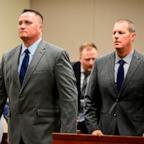Exercise Improves Stroke Outcome
Oct. 24 -- THURSDAY, Oct. 23 (HealthDay News) -- Recovering from a stroke is easier if you were physically active before the attack, a new Danish study finds.
Researchers found that such patients had less severe strokes and a better chance of long-term recovery.
"Keeping fit will increase your chance of a life without stroke," said lead researcher Dr. Lars-Henrik Krarup, from the Bispebjerg University Hospital in Copenhagen. "However, should you suffer a stroke, the chance is that it will be of milder severity, and you will make a better recovery."
"The findings may have implications for future prevention campaigns, as people can be told of the beneficial effects of physical activity even if they get a stroke," Krarup said.
For the study, Krarup's team looked at the medical records of 265 people who had suffered a stroke. These people were all able to walk without help, according to the report in the Oct. 21 issue of Neurology.
The researchers interviewed each person about their weekly exercise habits before their stroke. Krarup's group found the top 25 percent of people who exercised most were two-and-a-half-times more likely to have a less severe stroke compared with people who did the least amount of exercise. In addition, people who exercised the most had a better chance of long-term recovery.
Dr. Norman M. Kaplan, a clinical professor in the Division of Hypertension at the University of Texas Southwestern Medical Center at Dallas, thinks exercise is an important component to reducing the number and severity of strokes.
"Regular physical activity has repeatedly been proven to have multiple cardiovascular benefits that could reduce both the frequency and severity of strokes," Kaplan said. "These include a lowering of blood pressure, improvement of vascular endothelial function, and prevention of obesity."
"This article provides good evidence for these benefits and should further encourage all people to exercise to reduce the likelihood of strokes," Kaplan added.




